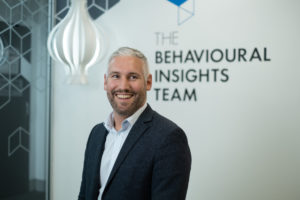The debate about technology and ethics has recently taken on a new intensity in media and policy circles. Teenagers’ use of smartphones and social media, and the impact on their mental health and wellbeing, is rarely out of the news.
This debate, however, often paints an over-simplified and sensationalised picture. Teenagers’ use of technology is viewed in terms of the dangers of addiction (for example, cyber-bullying, sexting, and ‘stranger danger’), and proposed solutions oscillate between the unrealistic (banning technologies) to the inadequate (subtle privacy setting tweaks).
In part, this narrow focus has been because teenagers’ voices in the debate have largely been edited or ignored. We wanted to redress this imbalance. In partnership with the Vincent Fairfax Family Foundation, we held a two-day citizens’ jury and design sprint mash-up called the #NoFilter Forum.
#NoFilter Forum from BIT Sydney on Vimeo.
We brought together 61 young people, aged between 12 and 16, to debate and design solutions that help them make good choices in an online world. The two days was full of lively discussion, fresh ideas and at times confronting honesty, and resulted in a series of practical ‘asks’ for parents, schools, peers and the tech industry.
We are incredibly grateful to the young people who offered us a window into their world. And using what they taught and told us, we have designed a series of interventions that we now plan to trial over the coming months:
- Formative Conversations – sparking conversations between parents and their children about a range of challenging ethical issues, ranging from peer pressure to pornography.
- Controlling the Online Environment – helping young people reflect on their relationship with technology and specific apps, and then make practical changes to their online environment.
- Social Compass – tackling the question that young people ask a lot but rarely get a good answer to: how can they handle complex online conflicts without things getting out of hand?
The #No Filter Forum underlined that there is currently a gap for such solutions, which bring young people’s ethical development to the fore, rather than narrowly focusing on reducing cyber-risks. In the process, we also hope to create evidence that can contribute to the wider debate, and hold the tech industry more accountable for the ethical and psychological effects of their products.
For more information email: Erin.Howard@bi.team
With thanks to the Vincent Fairfax Family Foundation and our fellow CODE team members: Edward Bradon, Nicky Quinn, Min-Taec Kim, and Zoe Powell.



